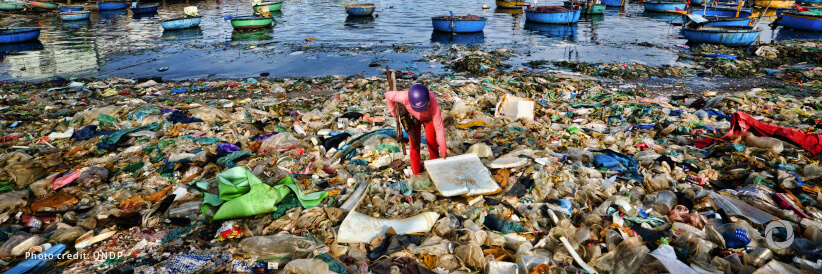UNOPS, UN-Habitat and Libya’s Ministry of Local Government are working together to promote plastic waste reduction and recycling. Waste management is a major issue in several municipalities in Libya. Inadequate management of solid waste such as plastic can create conditions that negatively impact people’s health and the environment.
A project funded by the Italian Agency for Development Cooperation will help decrease the amount of plastic waste generated in three municipalities in Libya: Abu-Salim, Souq Al Joum’aa and Tripoli Centre.
UNOPS is co-implementing the €3 million project with UN-Habitat, in support of Libya’s Ministry of Local Government.
”The project will help improve the environment and living conditions while also opening up new avenues for economic opportunities by encouraging the recycling and reuse of plastic waste, ”Nathalie Angibeau – UNOPS Country Manager in Tunisia, which implements projects across North Africa.
In collaboration with the Ministry of Local Government, UNOPS has provided comprehensive training to local civil society organizations that will implement awareness-raising and education campaigns on plastic waste management. The course equipped participants with the necessary tools and knowledge to effectively manage and promote plastic recycling efforts within their communities as well as provide information about plastic waste, the significance of recycling and its environmental impacts.
UNOPS will also provide training to local households to help reduce plastic waste generation at the community level. The campaigns and training will promote more responsible and eco-friendly behaviour in plastic use and disposal.
Employees from the Ministry of Local Government also attended the training to ensure it aligned with the government’s broader objectives and to provide oversight and insight throughout the process.
A pilot programme will also encourage communities, private businesses and local authorities to promote the collection and recycling of high-quality plastic that can then be used to make new products.
As part of the pilot programme, UNOPS will also identify and procure equipment for micro-, small and medium-sized enterprises to collect, sort and recycle plastic as well as make products from recycled plastic. This will help encourage new economic and livelihood opportunities.
UNOPS and UN-Habitat will also work with municipal staff to explore innovative ways to collaborate with the private sector to ensure that the collection, sorting and recycling processes remain financially viable over the long term. Training will also be provided to the municipalities to improve sustainable plastic waste management.

